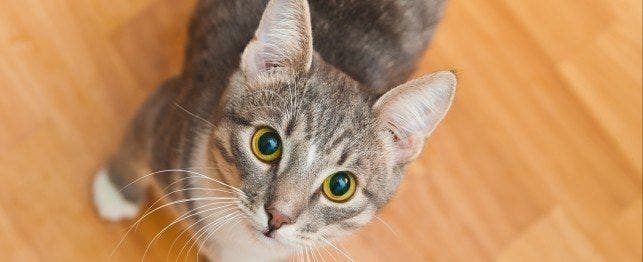
Getting to Know Your Kitten
You’ve just adopted a kitten, one of nature’s miracles and life’s supreme joys. Getting to know your kitten is a work in progress that extends long after your kitten becomes an adult cat.
The Consummate Individual
Cats are unique, and their individuality develops at an early age. “It’s possible to tell at 8 weeks of age which kittens in a litter will be more outgoing and which will be more laid back,” says Beverly Adams, who operates Katty Korner Kittery, a Maine coon cattery in central Pennsylvania.
Kittens prefer the company of their siblings to that of humans unless they are picked up, handled and petted regularly. “Let them know that you are part of their extended family,” says Adams, “otherwise they will be content playing with their littermates.”
Social Skills
During the first 14 weeks of life, your kitten learns social skills as she becomes more accustomed to living with you. She will depend on you for training and guidance as she once depended on her mother.
Your kitten vocalizes to let you know what she wants. Respond to her verbally to strengthen the bond. Many cat owners feel silly or uncomfortable talking to their cats, but the sound of your voice makes your kitten feel more secure and helps her learn about you.
Purring, one of the most pleasurable sounds a cat makes, is most often a sign of contentment. Listening to a kitten purr has a calming effect and can actually lower blood pressure and reduce stress. However, sometimes purring can be a sign of frustration or anxiety.
Play teaches your kitten vital survival skills and provides mental stimulation, physical exercise and an outlet for the seemingly limitless energy she exhibits. Your kitten expects you to be actively involved in play as her mother and littermates once did. Provide her with toys designed to meet all her play needs.
Social play imparts social learning between kittens and other animals, including the human animal. Locomotor play (running and jumping) helps a kitten increase strength and coordination. Object play (poking, batting and tossing small objects) is a way a kitten learns about prey and the skills she would need if she were living in the wild.
Once your kitten reaches the age of 3 months or so, she may enjoy some catnip toys. Younger kittens, those under 8 weeks, do not respond to the smell of catnip.
The Power of Observation
You will learn what is on your kitten’s mind just by observing how she walks, looks at you and moves her muscles as she responds to you and her environment. An erect tail and relaxed facial muscles are signs of contentment and allow other cats to smell the anal area – a sign of goodwill and acceptance. Don’t be offended if your kitten shows you her rear quarters. To her, you’re one of the feline clan, and she assumes you would want to sniff her nether regions just like another cat would.
If your kitten is fearful or defensive, her ears flatten, her pupils dilate and her hair puffs up. Looking very fierce, much like an advertising cat one sees at Halloween, a defensive kitten is practicing the less-than-subtle art of scaring off a predator by appearing larger than she is.
Washing, like kneading paws to stimulate milk flow, is a pleasurable kitten-hood memory. Your kitten substitutes you for her mother when she licks you or kneads her toes against you.
You should know how your kitten functions normally to help you detect health problems if they develop. Get to know her eating habits, how foods affect her waste elimination and how much water she drinks. Knowing what is normal intake for her is the first step in determining when her intake is abnormally high or low – signs of potential illnesses.
Different cats eliminate wastes in differing quantities and different intervals, depending on what they eat and how their digestive tracts function. Cleaning the litter box daily prevents house-soiling problems and gives you the opportunity to observe the condition.
Take time to get to know your kitten, enjoy her company and train her. You will be developing a bond that will last for many years to come.